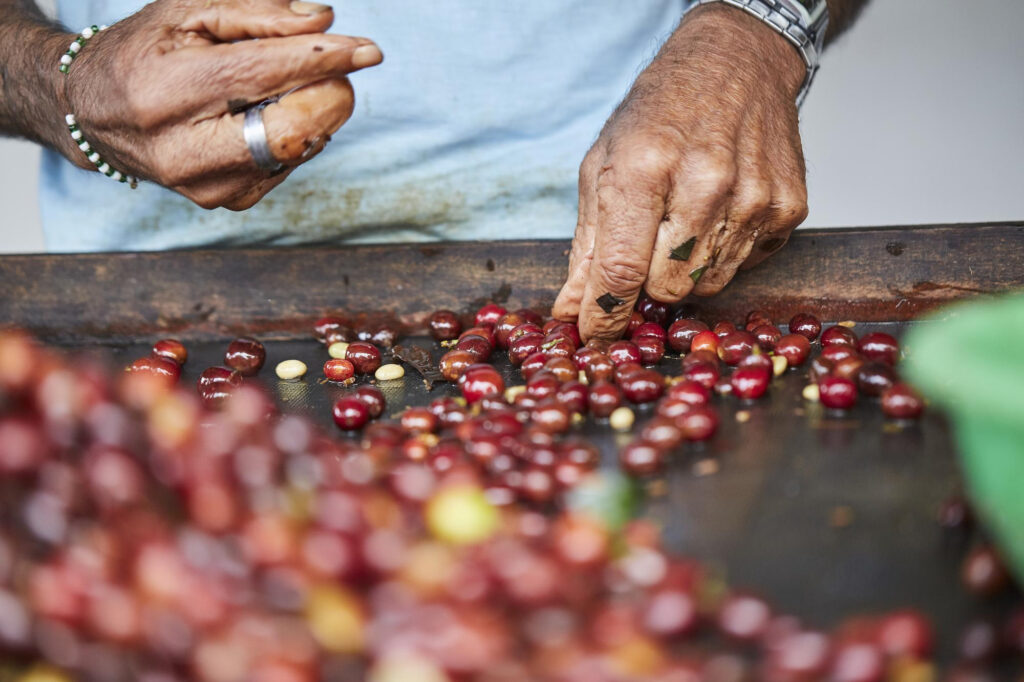Coffee is one of the most popular beverages in the world, enjoyed by millions every day. But behind every cup of coffee is a global industry that affects the lives of farmers, the environment, and entire communities. This is where Fairtrade coffee comes in—offering a way to ensure ethical sourcing, fair wages, and sustainable farming practices.
In this guide, we’ll explore what Fairtrade coffee is, how it supports farmers, and why it is crucial in promoting sustainability. Whether using a coffee machine at home or sipping a barista-made espresso, understanding Fairtrade coffee can help you make more responsible choices.

What is Fairtrade Coffee?
Fairtrade coffee is coffee-certified under the Fairtrade system, ensuring that the farmers who grow it receive fair prices and work in safe conditions. This certification also supports environmental sustainability and community development, allowing small-scale farmers to thrive in an industry often dominated by large corporations.
Fairtrade organisations set minimum price standards to protect farmers from market fluctuations, ensuring they earn a living wage. In addition, farmers receive a Fairtrade Premium—a financial bonus that communities can invest in education, healthcare, and infrastructure.
How Fairtrade Coffee Supports Farmers
Many coffee farmers worldwide, particularly in Latin America, Africa, and Asia, face significant challenges, including low wages, climate change, and unstable coffee prices. Fairtrade certification helps address these issues in several key ways:
1. Ensuring Fair Wages
One of the most significant advantages of Fairtrade coffee is the guarantee of a fair price. When market prices drop, Fairtrade-certified farmers still receive a minimum price covering sustainable production costs. This prevents them from falling into poverty and ensures they can continue farming.
2. Supporting Farmers’ Rights
Many coffee farmers work under poor labour conditions, sometimes even facing exploitation. Fairtrade certification sets strict labour standards, prohibiting child labour, forced labour, and discrimination. This ensures that workers receive fair wages, have safe working conditions, and are treated with respect.
3. Providing Financial Stability
Many farmers struggle with financial instability because the global coffee market can be unpredictable. Fairtrade offers long-term contracts and stable income, allowing farmers to plan for the future, invest in better equipment, and improve their quality of life.
4. Encouraging Cooperative Farming
Fairtrade coffee is often produced by cooperatives—groups of small-scale farmers who work together to share resources and knowledge. These cooperatives give farmers greater bargaining power, allowing them to negotiate better prices and access new markets.
How Fairtrade Coffee Promotes Sustainability
Sustainability is a core principle of Fairtrade, ensuring that coffee farming does not harm the environment and remains viable for future generations. Here’s how Fairtrade coffee contributes to a greener planet:
1. Protecting Rainforests and Biodiversity
Many large coffee plantations clear forests to make way for mass production, leading to deforestation and loss of biodiversity. Fairtrade coffee is often grown using sustainable methods that protect forests, wildlife, and natural ecosystems.
2. Promoting Organic Farming
Fairtrade encourages farmers to reduce their reliance on harmful pesticides and chemical fertilisers. Many Fairtrade-certified farms also follow organic farming practices, which help maintain soil health, protect water sources, and reduce pollution.
3. Supporting Climate Change Adaptation
Climate change seriously threatens coffee production, with rising temperatures and extreme weather affecting crop yields. Fairtrade funds climate resilience programmes, helping farmers adapt to changing conditions by providing training on sustainable farming techniques and access to climate-resistant coffee plants.
4. Reducing Carbon Footprints
Fairtrade cooperatives often use eco-friendly processing methods to reduce carbon emissions. Some initiatives even focus on renewable energy and water conservation, making Fairtrade coffee a more environmentally responsible choice.
How to Identify Fairtrade Coffee
To support Fairtrade coffee, look for the Fairtrade Mark on the packaging. This official certification label guarantees that the coffee meets Fairtrade standards for ethical sourcing, fair wages, and sustainability.
Many coffee brands now offer Fairtrade-certified options, whether you’re buying whole beans, ground coffee, or coffee pods for your coffee machine. You contribute to a fairer and more sustainable coffee industry by choosing Fairtrade coffee.
Why Choose Fairtrade Coffee?
Switching to Fairtrade coffee benefits more than just farmers and the environment—it also enhances your coffee-drinking experience. Here’s why it’s worth making the switch:
1. Better Taste and Quality
Fairtrade coffee is often grown using traditional, high-quality methods that enhance its flavour. Many Fairtrade-certified farms focus on speciality coffee, ensuring a richer and more satisfying cup.
2. Ethical Consumerism
Every purchase of Fairtrade coffee supports fair wages, ethical labour practices, and sustainable farming. Choosing Fairtrade is a way to make a positive impact through your everyday choices.
3. Investment in Communities
The Fairtrade Premium provides additional funds for community development projects, including education, healthcare, and infrastructure. By drinking Fairtrade coffee, you’re helping build stronger, healthier communities.
4. Supporting Small Farmers Over Big Corporations
Many large coffee companies prioritise profit over people, often exploiting small farmers. Fairtrade ensures that small-scale farmers receive fair compensation, allowing them to compete in the global market.
Fairtrade Coffee and Your Coffee Machine
If you own a coffee machine, switching to Fairtrade coffee is easy. Many Fairtrade-certified coffee brands offer beans, ground coffee, and even coffee pods compatible with popular machines. Whether you prefer a bean-to-cup machine, a traditional espresso maker, or a filter coffee setup, you can enjoy ethical, high-quality coffee at home.
Investing in a coffee machine that supports Fairtrade coffee can make a massive difference for workplaces. Offices and cafés that serve Fairtrade-certified brews contribute to fair wages and sustainability while offering employees and customers a more responsible coffee experience.
Conclusion
Fairtrade coffee is more than just a label—it’s a movement that supports farmers, protects the environment, and ensures a more sustainable future for coffee production. By choosing Fairtrade-certified coffee for your coffee machine or daily brew you help create a fairer, more ethical coffee industry.
Consider where it comes from next time you enjoy a cup of coffee. With Fairtrade coffee, you can be sure that every sip supports farmers, communities, and the planet.
